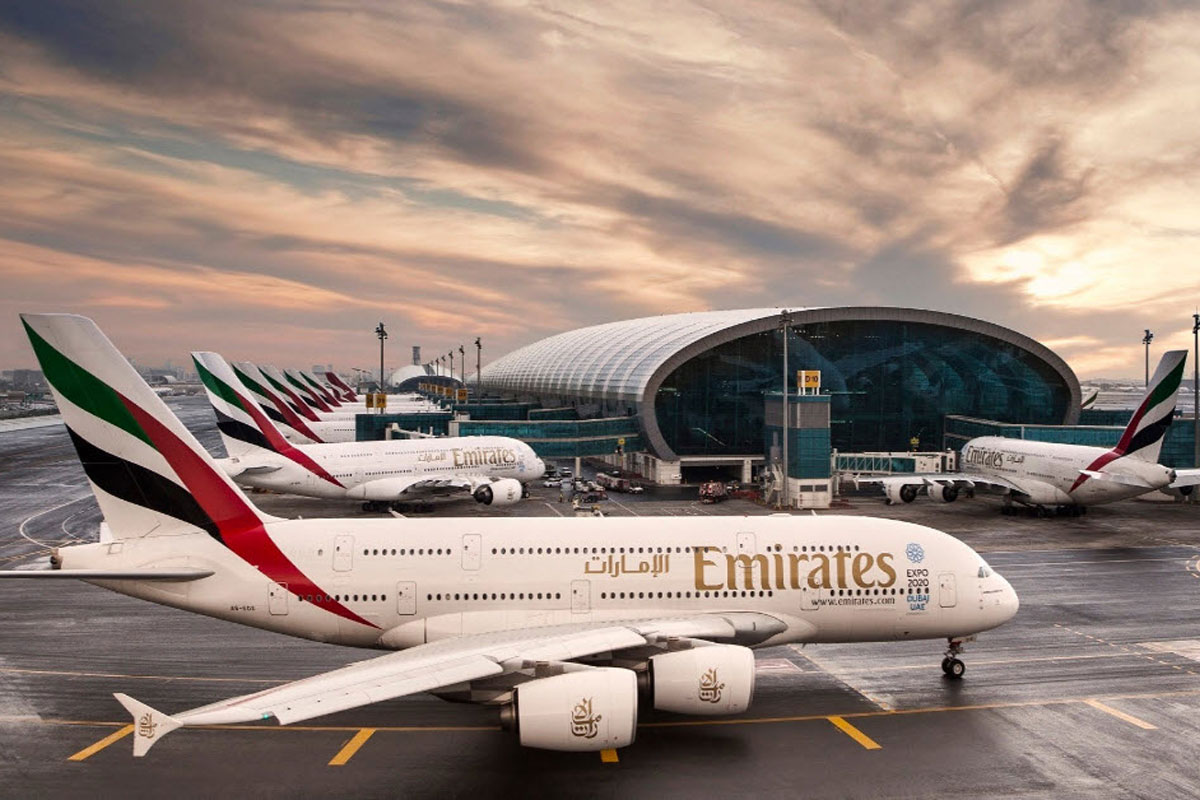Forget life jackets, black boxes and the reassuring smile of your favourite flight attendant; the foremost threat in travellers’ minds these days is murkier to evade – a deadly virus, which could be spread by anyone.
In light of this, Emirates has begun carrying out blood tests on passengers at the airport prior to flights. Both a sign of the times and what the future might hold (particularly in the medium term), in terms of knowing what virus you are exposing yourself into, these are the surest flights in the world right now.
Since the 15th April 2020, Emirates has been coordinating with Dubai Health Authority (DHA) to introduce additional precautions on flights. The airline also claims it is the first airline to conduct on-site rapid COVID-19 tests for passengers.
View this post on Instagram
“Passengers on today’s flight to Tunisia were all tested for COVID-19 before departing from Dubai,” the airline said last week in a press release.
“The quick blood tests are conducted by the Dubai Health Authority (DHA) and results were available within 10 minutes. This test was conveniently done at the Group Check-in area of Dubai International Airport Terminal 3.”
Adel Al Redha, Emirates Chief Operating Officer said: “The testing process has gone smoothly and we would like to take this opportunity to thank the Dubai Health Authority for their initiatives and innovative solutions. This would have not been possible without the support of Dubai Airport and other government authorities.”
“We are working on plans to scale up testing capabilities in the future and extend it to other flights, this will enable us to conduct on-site tests and provide immediate confirmation for Emirates passengers travelling to countries that require COVID-19 test certificates. The health and safety of staff and passengers at the airport remain of paramount importance,” Adel added.
HE Humaid Al Qutami, Director-General of the Dubai Health Authority (DHA), said: “We are glad to work with Emirates on the successful implementation of rapid COVID-19 testing at the airport for departing travellers. To tackle COVID-19, we have been proactively working with various governmental organisations and the private health sector and we have implemented all necessary measures from public health protection to provision of high-quality health services in line with the latest international guidelines.”
“We believe strongly that the most effective solutions require close partnerships with other public and private sector organisations.”
While it’s not a guarantee the blood tests will detect every case of COVID (as the US Food and Drug Administration told CNN Travel last week, in the early days of an infection when the body’s immune response is still building, “antibodies may not be detected”) it’s certainly a good start.
DMARGE has reached out Emirates to ask whether the blood tests have been (or will be) rolled out across a wider range of flights.
Even if it isn’t, Emirates has backed it up with a variety of leading-edge safety precautions. As Emirates announced on Tuesday the 21st of April, all cabin crew, boarding agents and ground staff in direct contact with passengers will now don personal protective equipment (PPE) which includes a protective disposable gown over their uniforms, and a safety visor, in addition to masks and gloves.
View this post on Instagram
“At Dubai International airport, gloves and masks are mandatory for all customers and employees. Thermal scanners monitor the temperatures of all passengers and employees stepping into the airport. Physical distancing indicators have been placed on the ground and at waiting areas to help travellers maintain the necessary distance during check-in and boarding,” Emirates said.
“The airport team has also installed protective barriers at each check-in desk to provide additional safety reassurance to passengers and employees during interaction over the counter.”
On top of that, on board Emirates’ flights, seats are pre-allocated with vacant seats placed between individual passengers or family groups in observance of physical distancing protocols – much like the protocol adopted last week by Qantas and Virgin Australia (and which seems to be the industry standard for the months, if not year to come).
Emirates has also modified its inflight services for health and safety reasons. Food and beverages continue to be offered in the form of bento-styled boxes to reduce contact between the crew and customers during meal service, and minimise risk of interaction. The personal boxes provide customers with sandwiches, beverages, snacks and desserts.
Another tack Emirates has taken to reduce the risk of spreading the virus is that magazines and other print reading material are temporarily unavailable and cabin baggage is currently not accepted on flights (carry-on items allowed in the cabin are limited to laptop, handbag, briefcase or baby items). All other items have to be checked in, and Emirates will add the cabin baggage allowance to customers’ check-in baggage allowance.
Customers also have to wear their masks and gloves throughout their journey from check-in until they disembark, and all Emirates aircraft will go through enhanced cleaning and disinfection processes in Dubai, after each journey.
Of course, your safest option is not to fly. But if you are going to, you’d want it to be on one like this.
